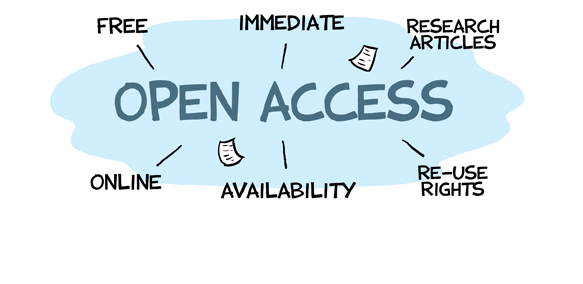
The Exclusive Club
The Exclusive Club https://opusproject.eu/wp-content/uploads/2024/02/PhDcomicsOpenAccess-1.png 583 284 Open and Universal Science (OPUS) Project Open and Universal Science (OPUS) Project https://opusproject.eu/wp-content/uploads/2024/02/PhDcomicsOpenAccess-1.pngIn the digital age, access to information is heralded as a fundamental human right, a catalyst for innovation, and a cornerstone of progress. However, the realm of premium publishers often stands as a stark contrast to these ideals, maintaining gated access to valuable knowledge through paywalls and subscriptions. This practice not only restricts the flow of information but also perpetuates inequality and impedes the advancement of society as a whole.
Premium publishers, boasting prestigious titles and esteemed journals, wield considerable influence in academia, research, and public discourse. Their content is often regarded as the pinnacle of scholarly achievement, shaping policies, driving innovation, and guiding scientific inquiry. Yet, despite their significant impact, many of these publishers continue to operate under closed-access models, reserving their content for those who can afford the hefty price tags associated with subscriptions.
This exclusivity creates a two-tiered system of knowledge dissemination: one for the privileged few who can pay for access and another for the rest of humanity. Such a system reinforces existing disparities, where those in resource-rich institutions or affluent countries have unfettered access to the latest research, while individuals in less privileged circumstances are left behind.
The implications of this exclusivity are profound. For researchers and academics in developing nations or underfunded institutions, the inability to access premium publications can hinder their ability to stay abreast of advancements in their fields, stifle their capacity to contribute meaningfully to global knowledge, and perpetuate a cycle of dependence on the academic elite.
Moreover, the closed-access model impedes the dissemination of critical information beyond academic circles. In an era marked by complex global challenges such as climate change, public health crises, and socioeconomic inequality, the need for accessible, evidence-based knowledge has never been greater. By erecting barriers to this knowledge, premium publishers not only hinder progress but also undermine the collective efforts to address these pressing issues.
Advocates of the status quo argue that subscription fees are necessary to support the rigorous peer-review process, editorial oversight, and production costs associated with high-quality publishing. While these concerns are valid, they do not justify perpetuating a system that prioritizes profit over the public good. Alternative models, such as open access publishing, offer viable solutions that reconcile the need for sustainability with the imperative of accessibility.
Open access initiatives, which make scholarly content freely available to the public, have gained momentum in recent years, driven by a growing recognition of the inherent value of democratizing knowledge. Platforms like arXiv, PLOS, and the Directory of Open Access Journals (DOAJ) have demonstrated the feasibility and efficacy of open access publishing, fostering innovation, collaboration, and inclusivity in the process.
Premium publishers must heed the call for change and embrace open access as a moral imperative and a strategic imperative. By transitioning to open access models, they can expand their reach, amplify their impact, and fulfill their responsibility to advance the collective pursuit of knowledge. Moreover, by dismantling barriers to access, they can contribute to a more equitable and just society, where knowledge is truly accessible to all, regardless of socioeconomic status or geographic location.
The reluctance of premium publishers to embrace open access for the betterment of humanity is a disservice to the principles of equity, inclusivity, and progress. It is incumbent upon these publishers to recognize their role as stewards of knowledge and to adopt models that prioritize accessibility, affordability, and transparency. Only through collective action and a commitment to openness can we realize the full potential of scholarship and ensure that the benefits of knowledge are shared by all.
Photo via WE Blog
- Posted In:
- Open Science News




